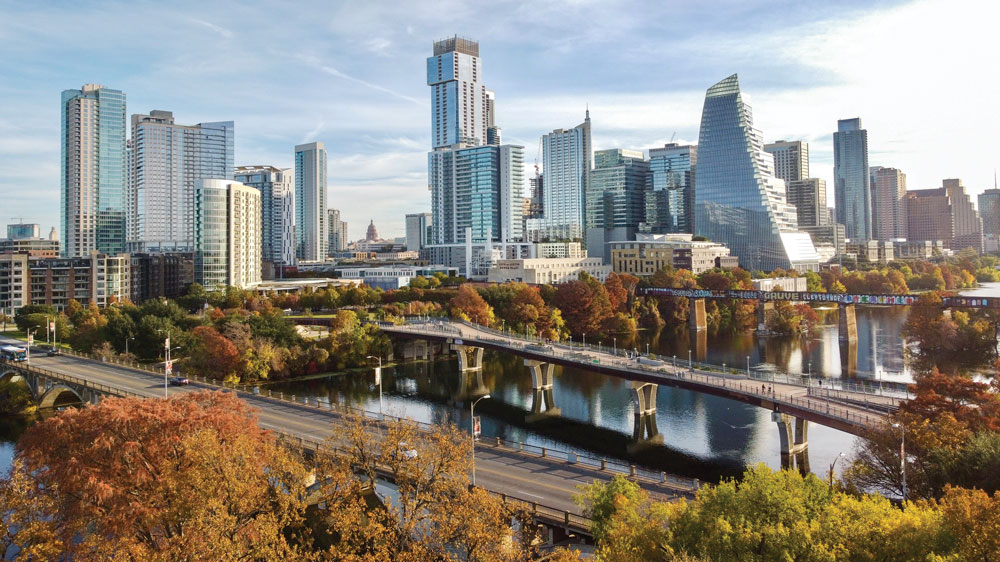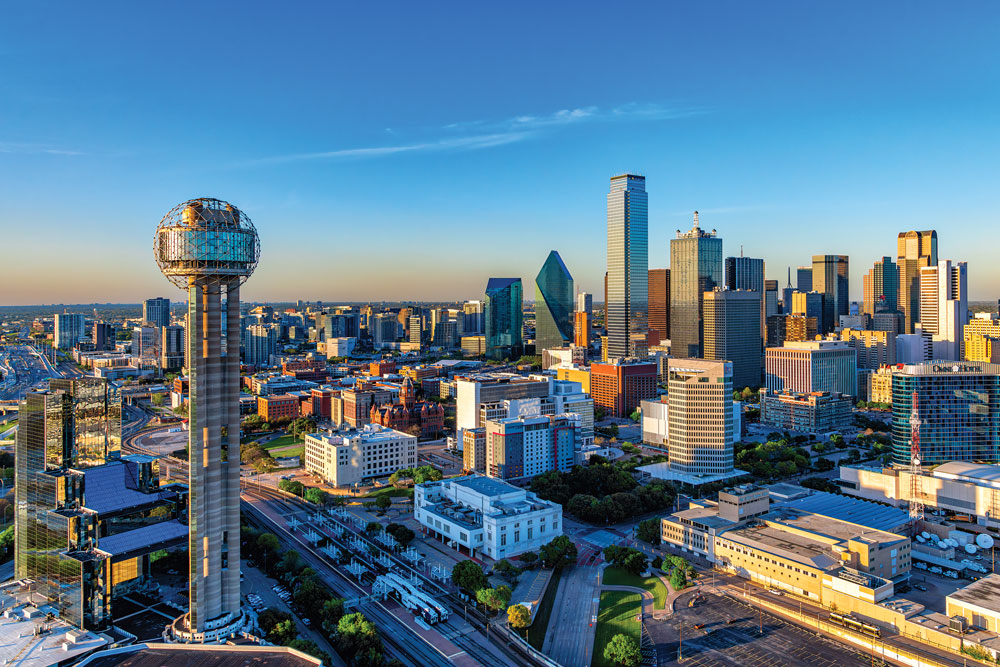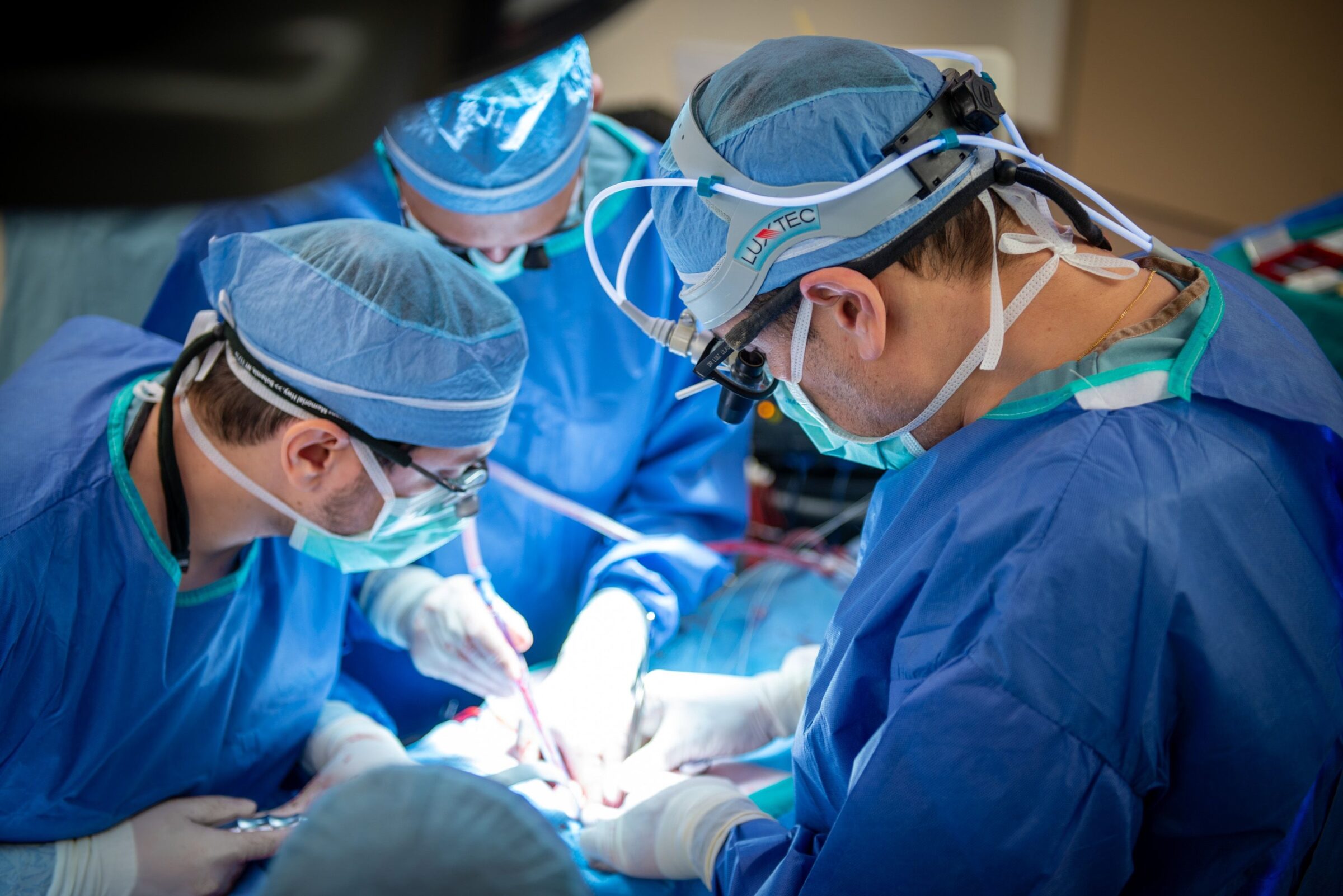Everything’s bigger in Texas, including its booming life sciences industry. From cutting-edge cancer research to game-changing biotech breakthroughs, the Lone Star State is proving it’s not just about oil and barbecue anymore. With more than 5,200 biotech and life sciences firms, a workforce 116,000 strong, and a thriving ecosystem of research institutions and medical hubs, Texas has cemented itself as a powerhouse in biopharma, digital health, life sciences and beyond.
The Building the Innovations of Tomorrow report from the Texas Health & Bioscience Institute (THBI) highlights the state’s rapid rise in biotech. Between 2018 and 2021, Texas’ life sciences workforce grew by 15%, outpacing the national average. Venture capital investments have skyrocketed, from $622.3 million in 2018 to $2 billion in 2021, fueling research in health-care tech, drug discovery and biopharmaceuticals.
With innovation hubs popping up across the state, Texas is proving that when it comes to life sciences, it’s not just keeping up with the competition. It’s leading the charge.
Houston
If Houston is a powerhouse in life sciences, Texas Medical Center (TMC) is the engine driving its success. Spanning 1,345 acres, TMC is the largest medical complex in the world, housing 61 institutions and 50 million sq. ft. of medical and research space and treating over 10 million patients a year.
Home to institutions like MD Anderson Cancer Center, Baylor College of Medicine, Houston Methodist, and Texas Children’s Hospital, the center is a magnet for top medical minds and groundbreaking research. Whether it’s new cancer treatments, advances in gene therapy, or the next big leap in regenerative medicine, a lot of it is happening right here.
But TMC isn’t resting on its reputation. The center is constantly expanding, with ambitious projects aimed at cementing Houston’s place as a global leader in life sciences. One of the most exciting developments at TMC is Helix Park, a $1.1 billion, 37-acre research campus designed to bring together biotech startups, pharmaceutical companies and top academic institutions. Think of it as a launchpad for the next generation of medical breakthroughs, where entrepreneurs and scientists can collaborate to develop new treatments.
Beyond TMC’s initiatives, Houston’s overall startup ecosystem has flourished. In 2024, local startups secured over $1.2 billion in venture funding. A notable example of Houston’s biotech momentum is CrossBridge Bio, which secured $10 million in financing in November 2024. The funding is directed toward advancing CrossBridge Bio’s lead program, CBB-120, a potential best-in-class TROP-2 dual-payload ADC designed to treat solid tumors. This innovative therapy aims to enhance treatment efficacy by addressing tumor heterogeneity and resistance, common challenges in cancer treatment.

Autumn in Austin
Photo: Getty Images
Austin
Austin’s tech-heavy culture has made it a hotbed for biotech innovation. The city’s ability to bridge the gap between biotech and software is driving major breakthroughs in AI-powered drug discovery, precision medicine and health-care technology. Companies like Luminex, Asuragen, and Everlywell are leveraging AI and data analytics to create next-generation diagnostic tools, making testing faster, cheaper and more accessible.
The city’s biotech ecosystem is further strengthened by its thriving startup culture and its support for emerging companies. Austin is home to more than 300 life sciences companies, creating an interconnected network of businesses that fuel one another’s growth. Industry leaders like XBiotech, Plus Therapeutics and Natera are already making waves, developing groundbreaking therapies and technologies.
BillionToOne is among the growing list of newcomers joining Austin’s rapidly growing biotech scene. The precision diagnostics company is expanding from Menlo Park, California, to build a 220,000-sq.-ft. CLIA-certified facility in EastVillage, a 425-acre master-planned project developed by Reger Holdings, LLC in northeast Austin. Set to open in 2026, the site will eventually employ over 1,000 people in roles ranging from clinical lab scientists to automation engineers, further fueling the city’s life sciences workforce.
Tarlton Properties, a leading life sciences developer and long-time partner of BillionToOne, is spearheading the expansion. The new facility will support the company’s continued growth and scale its patented Quantitative Counting Templates platform, which enables precise, single-molecule DNA counting for prenatal and oncology testing. With the capacity to process up to 6 million high-complexity tests per year, the Austin site will become a critical part of the company’s national operations.
Backed by strong collaboration among city leaders, developers and the local business community, the project underscores Austin’s appeal to forward-thinking biotech firms.

Downtown Dallas
Photo: Getty Images
Dallas
One of the most exciting developments shaking up Dallas’ life sciences landscape is the ARPA-H Customer Experience Hub, a $2.5 billion initiative under the federal Advanced Research Projects Agency for Health program. The program is set to accelerate medical breakthroughs and health care innovation, and Dallas is at the forefront. With the hub, the city will help fuel the development of life-saving treatments and pioneering medical technologies, making it a key player in revolutionizing the future of medicine.
Just down the road, Pegasus Park is quickly becoming the heart of North Texas’ biotech boom. This 23-acre campus is more than just real estate. It’s an incubator for some of the most promising biotech startups, research labs and venture capital firms in the area.
In a major win for the area, Universal DX, a cancer diagnostics company headquartered in Madrid, recently opened an office at Pegasus Park. Known for its groundbreaking work in colorectal cancer diagnostics, the company has completed the funding requirements for a clinical trial of a DNA test, Signal-C, which detects colorectal cancer and advanced precancerous lesions.
This is just one of many companies tapping into the opportunities Pegasus Park provides. With anchor tenants like BioLabs offering lab space and resources for early-stage companies, Pegasus Park is a springboard for biotech innovation.
What truly sets Dallas apart as a rising biotech powerhouse is its ability to seamlessly combine higher education and industry. A key player in this integration is UT Southwestern Medical Center, one of the nation’s top academic medical institutions, which is fueling both the talent pipeline and the region’s research breakthroughs. With an operating budget of over $5 billion, UT Southwestern is at the cutting edge of personalized medicine, genetic research and drug development. Its scientists are currently leading approximately 5,990 research projects.
San Antonio
With 138,000 workers employed in biotech, life sciences and health care, Greater San Antonio ranks as one of the strongest med-tech clusters in America. This sector alone produces an annual GDP in San Antonio of over $13.8 billion, and the job growth in this industry in the metro area is projected to be 10% from 2023 to 2028.
With nearly 6,000 biotech and medical establishments paying its workforce over $2.1 billion a year, this sector ranks as one of the fastest-growing in the eight-county area.
Top employers in the region in this sector include the Southwest Research Institute, the Texas Biomedical Research Institute and Medtronic. The average annual wage in med-tech in Greater San Antonio is $74,000 – well above the average state and national wage.
Another factor propelling industry growth in the region is the presence of UT Health San Antonio, soon to be integrated into The University of Texas at San Antonio, as a dynamic and rapidly expanding health science center with six professional schools. Annual funding from the U.S. military to UT Health San Antonio averages more than $15 million.

